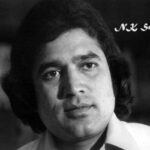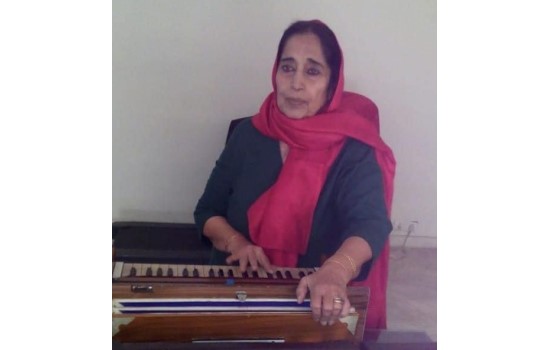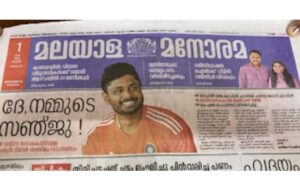Madanbala Sindhu passed away on 23 April 2023 after ruling the music, stage and film world for some eight decades with her Punjabi folk and wedding songs. K.K. Kohli, who had the privilege of working with Sindhu, reminisces the life and work of the lady with silver bells in her voice
 By Kamlesh Kumar Kohli
By Kamlesh Kumar Kohli
Yes, she was indeed a “Lady with silver bells in her voice” … And no, I do not use this expression of my own. Charles Fabri, India’s most competent dance, drama, music and art critic, a Hungarian by birth, used it in The Statesman way back in 1967 when he first saw this personification of Waris Shah’s Heer in R.G. Anand’s Indraprastha Theatre production of Punjabi opera Sassi Punnu.
Tall like a cypress tree, she was indeed a reincarnation of Heer. She was nothing short of a tsunami on the Delhi stage. Suddenly the small community of theatre, especially Punjabi opera artists, were willing to let someone else take centre stage. She came, she saw, and she conquered. That was Madanbala Sindhu, the craze, way back in 1967 – and 50 years later in 2017, nothing has changed.
Madanbala Sindhu is a name that will remain etched in golden letters in the history of India’s folk music, especially Punjabi folk music. When Punjab seems to have lost its love for the vivacious, melodious and coquettish Punjabi folk songs, she continued to hold the fort for the entire Punjab.

She remained a star singer until her yesteryear, drawing a full house – be it the revival of Sheila Bhatia’s (her mentor in Punjabi Opera) Chann Badlan Da in 2017, or an exclusive concert by her with a small, dedicated set of artists. And when she sang, transporting us back half a century, we couldn’t make out whether it was 1967 or 2017!
[Also by the same author: With Jagjit already gone, Bhupi’s demise leaves the world of melodious ghazal singing orphaned – THE NEWS PORTER]
The youngest of seven siblings, Madanbala, born on 1 November 1936, hailed from Rawalpindi. Her father was a Garrison Engineer in this British Cantonment town known for its melodious Potohari language and good-looking Pindiwalas.
Eldest Sister’s Early Demise
Her eldest sister, Kaushalaya, was considered an accomplished singer. Unfortunately, she passed away before Madanbala was born.
Madanbala started singing as soon as she could utter words. Her family believed she was the reincarnation of her eldest sister. Whether one believes in rebirth or not, the way Madanbala flourished as a unique voice, one will have to give some credence to this belief.
She was barely seven when she sang patriotic songs at a political rally in Rawalpindi organised in honour of the supreme commander of the Indian National Army Subhash Chandra Bose and his comrades, Shah Nawaz and Dhillon. This was just before the partition of the country – and Subhash Chandra Bose’s visit to Rawalpindi was a major landmark in the history of the freedom struggle.
Like all of those families who had to leave behind their homes, hearth, language, culture and way of life, Madanbala’s family also migrated to a safer Delhi. But it was not a safe journey. Being only seven years old, she did not understand the ramifications of the political turmoil around her.
She remembered having taken the train from Pindi through Lahore, Kasur, etc. and reached Faridkot on this side of the border. She had horrible memories of riots and dead bodies on railway platforms in Lahore and Kasur. It was only at Faridkot – when volunteers helped the family reach a ‘Langar’ – that she realised something was wrong.
Lasting Impact
What she saw as a child had a lasting impact on her psyche. If you have heard her sing Amrita Pritam’s Aj Aaakhan Warris Shah Nu, Kitte Kabran Wichon Bol, you would realise this. Madanbala’s rendering is as haunting as the original text of Amrita Pritam in contemporary Indian literature.
They say time is a great healer. Maybe so. Outwardly it did heal. Madanbala and her family were rehabilitated. She went to college in Mumbai to do M.A. and B.Ed. – participating in extra-curricular activities.
Being an accomplished singer, she won many prizes. Then she got married and moved to Delhi. Her husband, Sher Singh, a gentleman par excellence, was a banker working with the prestigious Grindlay’s Bank.
This was the time when R.G. Anand, the sophisticated professor of Architecture and a passionate theatre person heading Indraprastha Theatre, met Sher Singh and Madanbala.
Prof. Anand was in the process of producing Punjabi opera Sassi Punnu. Madanbala was a natural choice for singing Sindh’s Sufi poet Shah Abdul Latif’s Kalaam. Even R.G. Anand did not know that he was launching a million-dollar project! Well, almost equivalent to, if one could monetise the cultural contribution of this unique artiste.
Sassi Punnu was an instant hit. Delhi woke up to salute a new star.
(R.G. Anand was essentially an architect heading a well-established firm of Anand, Apte and Jhabvala and did theatre as a passion.)
The First Lady of Punjabi Opera in Delhi
Sheila Bhatia, the first lady of Punjabi opera in Delhi, learnt about Madanbala – and wasted no time in inviting her to join Delhi Art Theatre, known for its scintillating Punjabi and Urdu opera and its galaxy of stars. The rest, as they say, is history.
Madanbala ruled over Punjabi folk music and opera for close to half a century. She was the star performer in most of Sheila Bhatia’s Punjabi and Urdu operas like Chann Badlan Da, Sulagde Dariya, Dharti Te Swarag, Ghalib Kaun Hai and Dard Ayega Dabey Paaon.
Her large repertoire of songs includes:
- The ballads of Punjab – Heer Raanjha, Mirza Sahiban, Sassi Punnu, etc;
- The equally famous commercial recordings like Sehra and Mehndi, Dhol Dhamaka, etc
- The ever-popular Folk and Wedding songs of Punjab, with video recordings of Geet Shagna De and Ruttan Pyar Diyan, are a must for lovers of Punjabi folk music.
She learnt music from luminaries like Begum Akhtar, Master M.L. Sonik, Satish Bhatia, Ustad Yunus Malik, Ustad Gulam Mustafa Khan and Gulam Hussain Khan.
She was honoured with the prestigious Sangeet Natak Akademi Award in 1989, and Sangeet Seva Samman by Punjabi Academy, Delhi, in 1996. In 1981 she was given the Best Actor award on World Theatre Day 1981.
A Rare Talent
Opera requires a highly developed sense of acting. Madanbala was one of those rare talents that had a combination of good acting and great singing. She also worked extensively on the poetry of saint poet Bhai Veer Singh.
How could such a talent stay away from films? No, Madanbala did not shift to Mumbai to do films. She was too much of a family person dedicated to a lovely family. Films came to her. She did Balwant Gargi’s film on Shiv Batalvi, Muzaffar Ali’s Amir Khusro and Mira Nair’s Monsoon Wedding.
A widely travelled person, she mesmerized her audiences not only in India but also in London, Dubai, New York, Hong Kong, Bangkok, Chicago, Moscow and several other venues.
This writer had the good fortune of working with Madanbala Sindhu when he was directing his own production of Punjabi opera Wichhre Paani – which is still considered a landmark in Punjabi musicals after Shiela Bhatia’s operas. Wichhre Paani travelled to the heritage festivals of Kapurthala, Patiala and Amritsar to wide acclaim.
For the last few years, she was actively associated with a prominent theatre group Tamasha – headed by a committed and passionate theatre couple, Nirupama and Vinod Verma. She had done many plays like Hamari Bhi Suno, Wedding Mubarak, etc.
This ‘Lady With Silver Bells in Her Voice’ was enthralling crowds even a few years back – such as the tribute performance of Sheila Bhatia’s Chan Badlan Da, revived beautifully in 2017 by Tamasha group at New Delhi’s India International Centre.
P.B. Shelly must have thought of Madanbala Sindhu when he wrote:
Sing again, with your dear voice revealing a tone of some world far from ours, where music and moonlight and feeling are one.
[Photograph “stolen” from Nirupama Verma’s post on Facebook; Originally published in the August 16-31, 2017 issue of Delhi Diary Publication; Penned by KK Kohli in 2017, this article was made suitably contemporary. Published here with permission from Pramilla Chhabra, Editor, Delhi Diary Publication]
Kamlesh Kumar Kohli is a creative thespian who has staged many plays under his Impresario Asia and Nashisht banners












1 thought on “A tribute to the lady with silver bells in her voice”